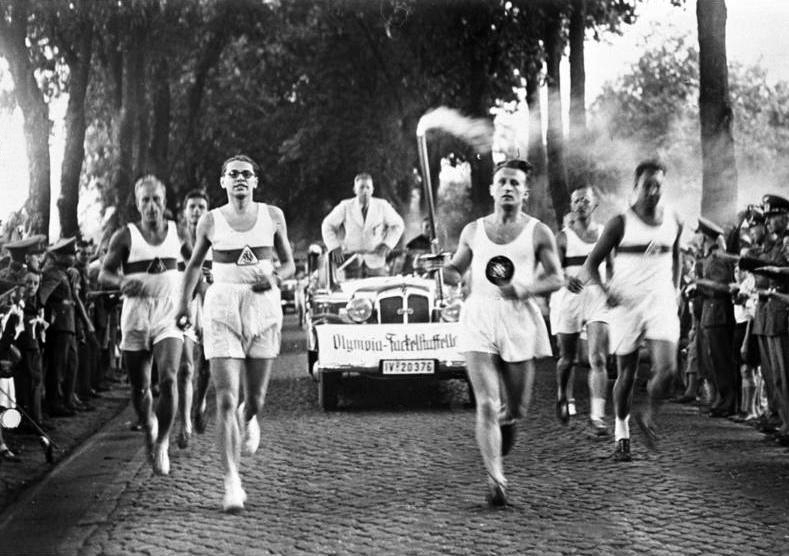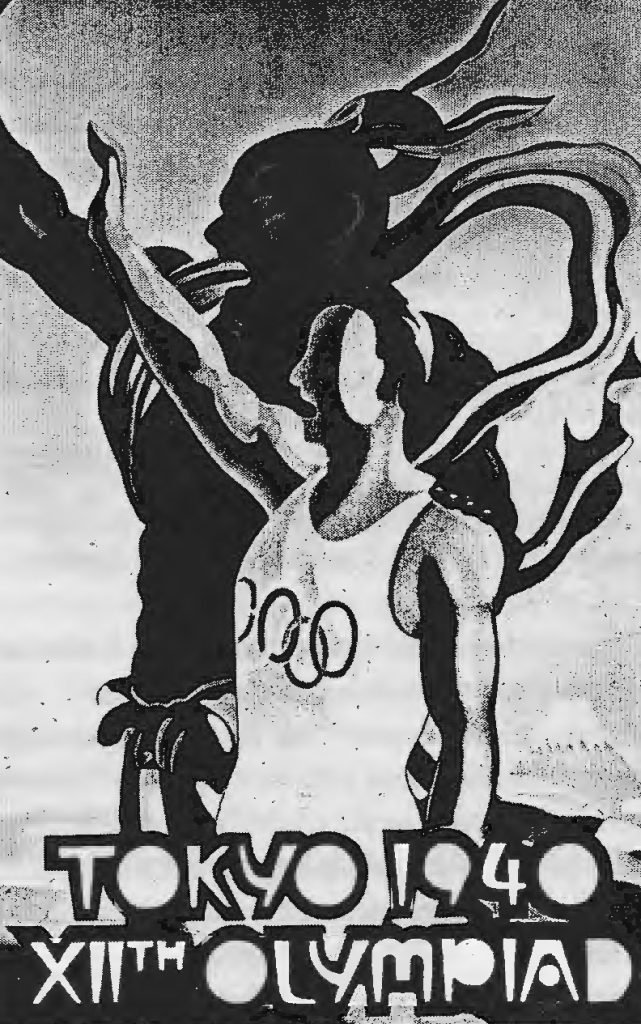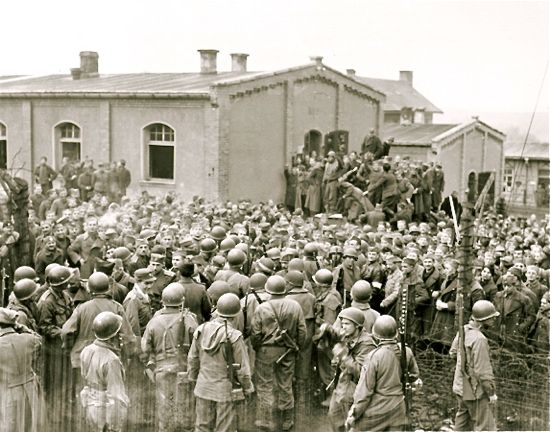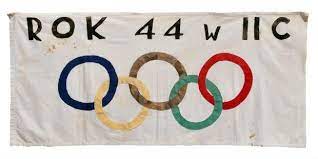So it’s that time of year… Again. Should have happened last year, but with a certain disease going around royally screwing up everyone’s travel plans, things got delayed. And hell, they’re saying the Olympics could be delayed again! Nightmare. But anyway, I think there’s a peculiar omen to this since there was another cancelled Olympics. It was even to be held in Japan! It too was delayed due to some truly unfortunate global events and if you know your basic history, I think you might guess what delayed the 1940 Summer Olympics.
1936 Berlin Olympics

Before we get into the 1940 Summer Olympics, let’s address what came before. It was, after all, another Olympic games held in a fascist country, though this was before that pesky world war went and made friendly international sporting events difficult. What probably didn’t help is that the vote was made in advance, in 1931 as a matter of fact. The runner-up was Spain, which had declared the victory of its fascist forces not long before the vote was held. So… Really, voting to hold it in Germany was the anti-fascist option. How ironic. Even funnier, this too was a ‘delayed Olympics’. The German Empire had been selected to host the 1916 Summer Olympics and a completely different world war ruled that out!
For all the skin-crawling evil of the Nazis, they had emerged on the cusp of new technological progress that allowed them to revolutionise aspects of the games. For one, TV was becoming increasingly available in Germany and as such, the 1936 Olympics was the first to be broadcast live. Only in Germany though – international broadcasts were still quite a way off. The Nazis also pushed their grandiose propaganda and began the first torch relay, a tradition that continues today and would have been attempted at the 1940 Summer Olympics. With a massive feature film made of the event as well, it proved to be a startlingly effective piece of propaganda.
Hosting the Olympics was a sign of legitimacy. While the Nazi regime was under major international pressure for its insatiable land-grabs, ripping up of agreements and torture of its own citizens, being able to show off its might and showmanship for a major international event was a way to boost their esteem and gain legitimacy. The USSR traditionally didn’t attend the games anyway and most western countries elected not to boycott, giving tacit approval and recognition in the process. On the whole it was a propaganda win, so naturally, you can see why a country suffering image problems would want to host the 1940 Summer Olympics.
1940 Summer Olympics

With the Nazis’ image problem in mind, we should consider that during the 1930s, Japan began to establish itself as an imperialist power, most notably through its invasion and occupation of Manchuria. It began to face international isolation and heavy protest, something it wasn’t quite equipped to handle alone. For these reasons, Japan launched a campaign to have the games held in Tokyo. Miraculously, they actually won this bid, becoming the first non-western country planned to host the Olympics. Very quickly though, things were cast into serious doubt for the 1940 Summer Olympics.
The Japanese military was a pretty autonomous force in a lot of ways and they could not care less about ‘international diplomacy’. In 1937, the second Sino Japanese war broke out causing enormous carnage and death. While many western countries were willing to overlook the Nazis brutalising their own people, an active imperialist power was a bit harder to swallow (at a time when gaining new colonies was frowned upon, but sitting on the ones you already had was fine.) Japan’s Olympic organisers scrambled to save the 1940 Summer Olympics but in 1938, it became clear that neither the international community nor the Japanese military really wanted it, so it was reluctantly conceded to a different country.
That country was Finland. And ah shit, Finland got invaded by the Soviet Union in November 1939. Plus war had broken out in the rest of Europe just a few months prior. So yeah, that plan got cancelled too, at which point Olympic organisers probably decided the year was haunted and just cancelled the 1940 Summer Olympics to wait until 1944. Well… With one possible exception. You see, travelling between different countries at this time was pretty difficult. But there was one big way to get physically fit men from many nations to gather in one place. In POW camps.
The POW Olympics

It should be noted that a POW camp is often a very different thing to a concentration camp… At least for some. Those from the east, colonies and of course those of Jewish descent would be treated much more harshly or simply deported to concentration camps instead. This camp was rough, but it was at least possible to survive and have a teeny bit of fun in ‘Stalag XIII-A’, the particular camp this games occurred in. Reportedly, the prisoners included men from Belgium, France, the UK, Norway, Poland, Russia and Yugoslavia. The games were reportedly held in absolute secrecy for fears of reprisal and only a few artefacts survived to be moved to museums many years later.
The event became pretty well known in Poland and even spawned a 1980 drama film depiction which was submitted for the Academy Awards. It wasn’t accepted, but hey, who gives a damn what the Oscars think? It’s a neat historical artifact and surely represents the spirit of the Olympics quite nicely. Even if the Germans were being such arseholes they couldn’t be involved in the 1940 Summer Olympics. So not quite as good as the WW1 Christmas truce kickabout, but still pretty good. This, however, would not prove to be the only incident of Olympics in the midst of war, but we’ll get to that soon.
1944 Summer Olympics

With the story of the 1940 Summer Olympics covered, let’s consider a concerning question. What about the next Olympics? It was, after all, also in some of the darkest days of WW2. Japan sure as hell wasn’t getting another shot and most of Europe was a vicious battleground between the Soviets, Nazis and a few assorted allies and resistance groups. Despite that, there had been plans to arrange something, finally opting for a location a bit less fascist… Well, unless you were Indian I suppose.
That’s right, the 1944 Summer Olympics was to be held in the UK. The bid had been won in June of 1939, so to be fair, there was no cataclysmic European war yet to throw things into uncertainty. That was just three months away. As Britain entered the war and most European countries fell to occupation, it became almost immediately obvious that this would be no different to the 1940 Summer Olympics. Reluctantly, it was cancelled and the only official acknowledgement was a small ceremony in the Olympics headquarters in neutral Switzerland. Quite a lucky place to host your headquarters at that time, it has to be said.
London would get its time in the spotlight ahead of Japan and Finland in 1948, but there was at least one sporting event in 1944 to keep the tradition going. When the Nazis occupied Poland, some higher ranking officers were treated with more dignity in POW camps. 500 officers were forced to build their own prison camp from 1939 to 1942, which ended up being a small town of 7000 people with some fairly decent facilities. In this unique situation, the Nazis were a little less Nazi-like and when it was suggested in 1944 that a camp Olympics be played to pay tribute to the sport, the fascists surprisingly agreed.
Or, perhaps not so surprisingly. By the summer of 1944, the war was becoming pretty obviously hopeless. Many not engaged in hopeless struggle on the front were keen to set themselves up nicely for a post-war scenario and many suggest that the Nazis allowed the POW Olympics to go ahead so that it’d look good if they ever went to trial. The same cynical reasons for the 1940 Summer Olympics and the 1936 Olympics before that! It’s all about optics. But anyway, the camp really went all out, even printing posters and commemorative stamps for the event.
On the 23rd of July, the POW Olympics was held. With only Polish POWs, it wasn’t exactly the grand expression of international sporting some may expect from the Olympics, but it was still a grand effort. 369 prisoners participated in 464 competitions, with a few ‘dangerous’ sports like archery, fencing and pole vault not approved by the guards. The winners got some medals made of… Paper. I guess the war effort demanded bronze, silver and gold. Despite all this seemingly lovely solidarity, the oncoming Red Army saw the Nazis transform into their usual selves, sending the POWs on a death march that left only an estimated 300 prisoners alive.
Conclusion
The 1940 Summer Olympics maybe puts things in perspective somewhat. Japan seriously can’t catch a break on its Olympic dreams and with the upcoming Olympics mired in controversy and set amidst a backdrop of global pandemic with many cases, it’s entirely possible it’ll be cancelled again. Though at least this time they’ll probably not just give up and hand it over to Finland instead. You may also wonder, understandably, what any of this has to do with YPT? Well it’s certainly not the first time we’ve discussed the Olympics.
Not to mention, we’re a travel company. Our whole shtick is organising unique events that gather people around the world to exotic, interesting destinations. We’ve certainly had our share of sport-related tours and well, so I’m feeling a certain sympathy for their plight. Let’s hope for safety. Hopefully this won’t turn out like the 1940 Olympics. And maybe we can take it as a good omen for travel and tourism as a whole going forward. Might as well, right?





